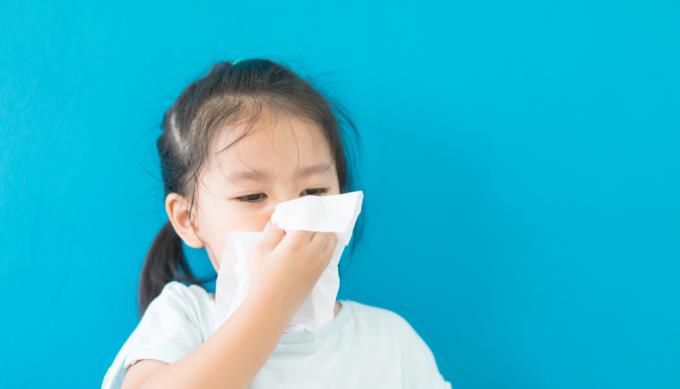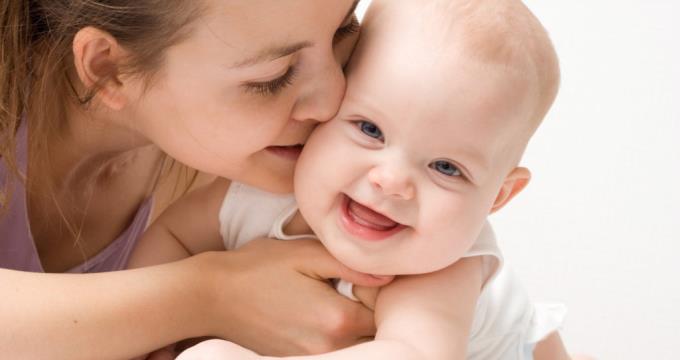Ways to determine an infants caloric needs

Learn how to determine your baby’s caloric needs, including the calories in breast milk and formula, to ensure your infant gets the right nutrition for healthy growth.
When your baby gets sick, you need to know that using antibiotics for children for the wrong purposes will not help or even harm your baby. Antibiotics are drugs used to treat infections and they target bacteria, not viruses.
Although antibiotics are surprisingly effective in treating illnesses, overuse of them also makes their ability to fight bacteria less effective or even antibiotic resistance . Therefore, you should find out when or when to use antibiotics in children. The following article, aFamilyToday Health will synthesize 10 frequently asked questions to help you get more information on this issue.
A cold is caused by a virus. Antibiotics are used especially for bacterial infections. In general, most common cold symptoms such as runny nose, cough or stuffy nose are considered to be mild and your baby will get better without any medicine. Therefore, you can learn about home cold remedies to help your baby get well quickly.
In most cases, the bacterial infection is not accompanied by a viral infection. Therefore, using antibiotics in children to treat a viral infection can lead to a bacterial infection becoming resistant.
In addition, your child may experience diarrhea or other side effects of the medication. If your child has diarrhea, bloody loose stools, or other unusual conditions, get them to the hospital right away.

When you have a common cold, the mucus in your nose is quite thick in texture and changes from clear color to yellow or green. Symptoms usually last for about 10 days. There are some signs that the bacteria may be linked to a child's respiratory illness.
If your baby has a common cold with blue nasal mucus that lasts more than 10 days, or if yellow or green mucus is present with fever higher than 39 ° C for at least 3 - 4 days, this could be a sign of a sinus infection caused by bacteria.
If your child has a bacterial sinus infection, he or she may need antibiotics for the children. Before prescribing, the doctor will ask about other signs and check to make sure the child is suitable for taking this medicine.
Not all ear infections are treated with antibiotics. At least half of the condition will go away on its own without medication. If your baby does not have a high fever or does not show severe ear pain, the doctor can advise you only on careful monitoring and proper care. However, since pain is often the first and most unpleasant symptom of an ear infection, your doctor will often prescribe pain relievers to help your baby feel more comfortable.
Additionally, acetaminophen and ibuprofen are both on the list of over-the-counter pain relievers that can help relieve pain. If you want to take this medicine, make sure your baby is taking the correct dosage based on age and weight. In most cases pain and fever should improve within the first 1-2 days.
In addition, there are also ear drops that can help relieve pain for a short time. Over-the-counter cold medicines (decongestants and antihistamines) do not help get rid of ear infections and are not recommended for young children. Your child's doctor may prescribe an antibiotic if he or she has a fever that doesn't stop, shows signs of worsening ear pain and infection in both eardrums.
The answer is no. This is because 80% of the cases are usually caused by viruses. If your baby has a sore throat, runny nose and dry cough, the virus can be the "culprit" of these conditions. Antibiotics should only be used to treat sore throats caused by group A streptococci. Infection caused by this bacterium is called strep throat , which usually affects school-aged children and does not affect children under 3 years of age.
If the doctor suspects your baby has strep throat based on the symptoms, he or she will need a test to conclude whether antibiotics are needed.

Side effects can occur at a rate of 1/10, including rash, allergic reactions , nausea, diarrhea, and stomach pain. Take your baby to hospital if you suspect your baby is reacting to antibiotics. Sometimes a rash will happen while the child takes antibiotics. However, this is not considered an allergic reaction. On the other hand, take your child to the clinic if he finds that he has an itchy rash, hives, and a lumpy skin rash.
You can learn more: Harm of antibiotics if you take them arbitrarily
Most bacterial infections improve within 48 - 72 hours of starting antibiotics. If your baby's symptoms get worse or the condition doesn't improve within 72 hours, take your baby to the clinic. In a baby who stops taking antibiotics too soon, the infection may not be completely treated and symptoms may start again.
Repeated use and overuse of antibiotics can lead to drug resistance. Drugs are bacteria that are not destroyed by antibiotics commonly used to treat illnesses. These drug-resistant bacteria can also spread to other children and adults. Therefore, when using antibiotics for children, pay attention to the drug that is most specific to the baby's condition, not the antibiotic that will treat a variety of infections.
If your baby's infection shows signs of antibiotic resistance, your baby may need to be treated with a special antibiotic. Sometimes these drugs need to be given intravenously.
The flu is a viral infection that can cause cold symptoms that antiviral medications will have a positive effect on. Your baby's doctor may prescribe an antiviral medicine for children if he or she is at risk of getting worse from the flu. For other viruses that cause cough and cold symptoms, no antivirals are effective or recommended.
How to safely use antibiotics for children is a concern of many parents who are nursing young children. The use of antibiotics should comply with the following precautions:
Antibiotics are not always the first choice when a child is sick
Antibiotics are effective against bacterial infections and cannot cure colds and flu
Do not give a child's antibiotics to siblings or friends because you could give the wrong medicine and harm your baby.
Ask your doctor if prescription antibiotics are the best option for a bacterial infection your baby has. For example, some antibiotics like azithromycin are no longer effective against the bacteria that cause most ear and sinus infections.
If your baby is prescribed antibiotics, you need to give your baby the correct dose and time. Absolutely do not let your child stop taking the medicine when the symptoms improve. This can lead to drug resistance.
Learn how to determine your baby’s caloric needs, including the calories in breast milk and formula, to ensure your infant gets the right nutrition for healthy growth.
Discover the top 5 smartest dog breeds in the world, including Border Collie, Poodle, German Shepherd, Golden Retriever, and Doberman Pinscher. Learn about their unique traits and why they are considered the most intelligent dogs.
Discover 7 nutritious and delicious ways to cook egg porridge for babies, including recipes with cheese, pumpkin, tomato, and more. Learn how to prepare baby-friendly egg porridge with our expert tips.
After a series of medical measures they obtained a complete human vascular system profile.
Watermelon is one of the fruits that many people love, not only cheap but also delicious, nutritious and refreshing in the summer. To get delicious watermelon pieces, show off your housewives, your artistic talents to cut beautiful pieces of watermelon.
aFamilyToday Health - The digestive system and body in each baby is different. Parents need to recognize notes to deal with when babies have a food allergy!
Babies need many factors for perfect development. aFamilyToday Health shares with parents things to keep in mind when babies are 8 weeks old so that parents can take care of their babies the best!
Babies need many factors for perfect development. aFamilyToday Health shares with parents things to keep in mind when babies are 18 weeks so that parents can take care of their babies the best!
Babies need many factors for perfect development. aFamilyToday Health shares with parents things to keep in mind when babies are 28 weeks old so that parents can take care of their babies the best!
Babies need many factors for perfect development. aFamilyToday Health shares with parents things to keep in mind when babies are 32 weeks old so that parents can take care of their babies the best!








